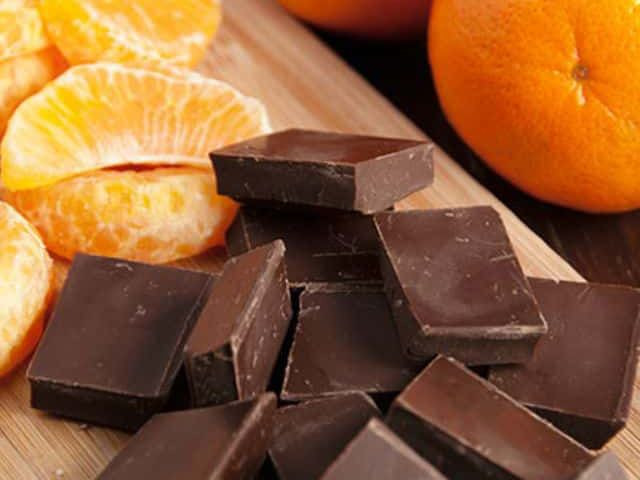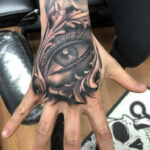Considering a new tattoo and wondering, “Can I Have Alcohol After A Tattoo?” At tattooat.com, we understand the excitement, but also the importance of proper aftercare. This guide provides a comprehensive look at alcohol consumption around your tattoo appointment, ensuring a smooth healing process and a vibrant tattoo for years to come.
1. Understanding the Risks: Why Avoid Alcohol After a Tattoo?
The primary concern surrounding alcohol and new tattoos revolves around its impact on your body’s natural healing abilities. While celebrating a fresh piece of body art might seem tempting, it’s best to understand how alcohol can hinder the recovery process.
1.1. Alcohol’s Impact on Blood Clotting
Alcohol consumption is not advised for at least 48 hours after getting a tattoo, because alcohol thins the blood, interfering with clotting, and prolonging healing. Blood clotting is vital for sealing the wound created by the tattoo needles and preventing infection. Excessive bleeding can also dilute the tattoo ink, leading to a faded or uneven appearance.
1.2. Compromised Immune System
Alcohol consumption can negatively affect your immune response, increasing the risk of infection in your new tattoo. A weakened immune system struggles to fight off bacteria, potentially leading to complications such as redness, swelling, pain, and even the need for medical intervention.
1.3. Dehydration and Skin Health
Drinking alcohol can lead to dehydration, which is detrimental to the healing of a new tattoo, so it’s best to hold off for 48 hours. Proper hydration is essential for maintaining skin elasticity and promoting cell regeneration. Dehydrated skin is more prone to cracking, scabbing, and scarring, all of which can negatively impact the appearance of your tattoo.
 Fresh arm tattoo with vibrant colors, skin healing well, reflecting dedication to tattoo aftercare.
Fresh arm tattoo with vibrant colors, skin healing well, reflecting dedication to tattoo aftercare.
2. When Can You Drink Alcohol After Getting a Tattoo?
While a hard and fast rule doesn’t exist, erring on the side of caution is always best. Tattoo artists generally recommend abstaining from alcohol for at least 48-72 hours after getting inked. The exact duration depends on factors like the size and placement of the tattoo, individual healing rates, and overall health.
2.1. Factors Influencing Alcohol Abstinence Period
- Tattoo Size: Larger tattoos involve more extensive skin trauma and require a longer healing period, thus extending the recommended time to avoid alcohol.
- Tattoo Placement: Areas with high blood flow, such as the wrists or neck, may bleed more easily, necessitating a longer period of alcohol abstinence.
- Individual Healing Rates: Some people naturally heal faster than others. However, it’s always best to follow the general guidelines, as individual healing rates can be difficult to predict.
- Overall Health: Individuals with pre-existing health conditions or compromised immune systems should consult their doctor or tattoo artist for personalized advice on alcohol consumption after getting a tattoo.
3. The Impact of Alcohol Before Getting a Tattoo
The concerns surrounding alcohol aren’t limited to just after the tattooing process. Consuming alcohol before your appointment can also pose several risks:
3.1. Increased Bleeding During Tattooing
Avoid drinking 24 hours prior to tattooing as alcohol thins the blood, leading to increased bleeding during the procedure. Excessive bleeding can make it difficult for the tattoo artist to see clearly and accurately apply the ink, potentially affecting the final result.
3.2. Impaired Judgment and Decision-Making
Do not drink alcohol before getting a tattoo, because it impairs judgment, potentially leading to regretful decisions about design or placement. Choosing a tattoo is a significant decision, and it’s important to be in a clear and rational state of mind.
3.3. Studio Policies and Artist Discretion
Many reputable tattoo studios refuse to work on clients who appear to be under the influence of alcohol. This is for both legal and ethical reasons, as intoxicated individuals cannot provide informed consent.
 A person looking nauseous while sitting at a bar, indicating they are feeling ill after having had alcohol
A person looking nauseous while sitting at a bar, indicating they are feeling ill after having had alcohol
4. Potential Risks of Drinking Alcohol After a Tattoo: A Closer Look
Understanding the potential consequences of drinking alcohol after a tattoo can help you make informed decisions and prioritize proper aftercare.
4.1. Delayed Healing Process
Consuming alcohol after a tattoo can delay healing due to its impact on blood clotting and immune function. The body’s ability to repair damaged tissue is compromised, potentially prolonging the recovery period and increasing the risk of complications.
4.2. Increased Risk of Infection
Drinking alcohol after a tattoo can weaken the immune system, making the tattoo more susceptible to infection. Bacteria can easily enter the open wound, leading to localized infections or, in rare cases, more serious systemic infections.
4.3. Tattoo Fading and Distortion
Alcohol-induced bleeding can cause tattoo ink to dilute, resulting in fading or distortion of the design. The ink may not settle properly in the skin, leading to an uneven or patchy appearance.
4.4. Poor Decision-Making and Neglect of Aftercare
Alcohol consumption can impair judgment, leading to neglect of proper tattoo aftercare practices. This can include forgetting to clean and moisturize the tattoo, picking at scabs, or exposing the tattoo to harmful elements like sunlight or contaminated water.
4.5. Research-Backed Insights
According to research from Portland State University’s Art Department, in July 2023, compromising tattoo healing by drinking alcohol can lead to infection, distortion, or other complications.
5. What Can You Drink After Getting a Tattoo? Healthy Alternatives
Abstaining from alcohol doesn’t mean you have to miss out on celebratory drinks. Several healthy and hydrating alternatives can support your tattoo’s healing process:
5.1. Water: The Elixir of Life
Staying hydrated by drinking plenty of water is crucial for overall health and tattoo healing. Water helps maintain skin elasticity, promotes cell regeneration, and flushes out toxins. Aim for at least eight glasses of water per day, and more if you’re active or live in a hot climate.
5.2. Herbal Teas: Soothing and Antioxidant-Rich
Herbal teas, like chamomile or green tea, offer soothing properties and antioxidants that can aid in healing and reduce inflammation. Choose caffeine-free options to avoid dehydration and promote relaxation.
5.3. Fresh Juices: Vitamin Boost
Freshly squeezed juices, especially those rich in Vitamin C, can provide a boost to your immune system and promote collagen production. Opt for juices made from oranges, grapefruits, pineapples, or berries. Be mindful of the sugar content and dilute with water if necessary.
5.4. Coconut Water: Natural Electrolyte Replenishment
Coconut water is a natural source of electrolytes, which can help replenish fluids lost during the tattooing process. It’s also a good source of potassium, which plays a role in maintaining healthy skin.
 Display of dark chocolate, an orange, and some broccoli
Display of dark chocolate, an orange, and some broccoli
6. Foods to Promote Tattoo Healing
What you eat can also significantly impact your tattoo’s healing process. Focus on nutrient-rich foods that support immune function, collagen production, and overall skin health.
6.1. Protein: The Building Block of Tissue Repair
Protein is essential for tissue repair and regeneration. Include sources of lean protein like chicken, fish, beans, lentils, and tofu in your diet.
6.2. Vitamin C: The Collagen Booster
Vitamin C is crucial for collagen production, which provides structure and elasticity to the skin. Eat plenty of citrus fruits, berries, kiwi, and bell peppers.
6.3. Zinc: The Immune System Supporter
Zinc supports the immune system and aids in wound healing. Include zinc-rich foods like oysters, red meat, poultry, nuts, and seeds in your diet.
6.4. Healthy Fats: Nourishing the Skin from Within
Healthy fats, like omega-3 fatty acids, nourish the skin and reduce inflammation. Eat fatty fish like salmon and tuna, avocados, nuts, and seeds.
6.5. Foods to Avoid
- Processed Foods: High in sugar, unhealthy fats, and artificial ingredients, these can hinder the healing process.
- Sugary Drinks: Can lead to dehydration and inflammation.
- Excessive Salt: Can cause water retention and swelling.
| Food Group | Recommended Foods | Foods to Limit/Avoid |
|---|---|---|
| Protein | Chicken, fish, beans, lentils, tofu | Processed meats (sausage, bacon) |
| Vitamin C | Citrus fruits, berries, kiwi, bell peppers | |
| Zinc | Oysters, red meat, poultry, nuts, seeds | |
| Healthy Fats | Salmon, tuna, avocados, nuts, seeds | Fried foods, processed snacks |
| General | Water, herbal teas, fresh juices | Processed foods, sugary drinks, excessive salt |
7. The Importance of Following Your Tattoo Artist’s Aftercare Instructions
Every tattoo artist has specific aftercare instructions tailored to their techniques and the products they use. Following these instructions is crucial for ensuring optimal healing and preventing complications.
7.1. Common Aftercare Guidelines
- Keep the tattoo clean: Gently wash the tattoo with mild, fragrance-free soap and warm water 2-3 times per day.
- Apply a thin layer of moisturizer: Use a fragrance-free, hypoallergenic moisturizer to keep the skin hydrated.
- Avoid sun exposure: Protect the tattoo from direct sunlight by wearing loose-fitting clothing or using a sunscreen specifically designed for tattoos.
- Don’t pick or scratch: Resist the urge to pick at scabs or scratch the tattoo, as this can lead to scarring and ink loss.
- Avoid soaking the tattoo: Refrain from swimming, bathing, or soaking the tattoo in water for extended periods.
7.2. When to Seek Professional Advice
Contact your tattoo artist or a healthcare professional if you experience any of the following:
- Excessive redness, swelling, or pain
- Pus or drainage from the tattoo
- Fever or chills
- Any other concerning symptoms
 Tattoos and a glass of wine
Tattoos and a glass of wine
8. Choosing a Reputable Tattoo Artist and Studio
The quality of your tattoo and its healing process are heavily influenced by the skill and experience of your tattoo artist, as well as the hygiene standards of the studio.
8.1. Research and Reviews
Read online reviews, check out portfolios, and ask for recommendations from friends or other tattoo enthusiasts.
8.2. Hygiene and Sterilization
Ensure that the studio follows strict hygiene protocols, including using sterilized equipment, disposable needles, and gloves.
8.3. Consultation and Communication
A good tattoo artist will take the time to discuss your design ideas, assess your skin, and provide detailed aftercare instructions.
8.4. Legal Considerations
Good tattoo artists and tattoo shop owners refuse to give you a tattoo if they suspect you are under the influence of alcohol because, legally, you cannot sign a liability form while you are intoxicated
9. Addressing Common Concerns and Misconceptions
9.1. Can I drink alcohol if I only have a small tattoo?
Even with a small tattoo, alcohol can still interfere with the healing process. It’s best to abstain for at least 48 hours.
9.2. Will one drink really make a difference?
While one drink may not cause significant harm, it’s still best to avoid alcohol altogether to ensure optimal healing.
9.3. Can I use numbing cream to reduce pain and then drink alcohol?
Numbing creams can help reduce pain during tattooing, but they don’t negate the negative effects of alcohol on healing.
9.4. I drank alcohol before my tattoo appointment. What should I do?
Be honest with your tattoo artist. They may choose to reschedule your appointment or take extra precautions during the procedure.
10. Discover Your Perfect Tattoo at tattooat.com
Ready to embark on your tattoo journey? At tattooat.com, we connect you with talented artists and reputable studios in the USA, particularly in vibrant cities like Portland.
10.1. Design Inspiration and Artist Discovery
Explore a vast library of tattoo designs, browse artist portfolios, and find the perfect artist to bring your vision to life.
10.2. Expert Advice and Resources
Access comprehensive guides on tattoo aftercare, styles, and trends, ensuring you’re well-informed every step of the way.
10.3. Community and Support
Connect with fellow tattoo enthusiasts, share your experiences, and get inspired.
Don’t let uncertainty about alcohol consumption hold you back from getting the tattoo of your dreams. Visit tattooat.com today to find inspiration, connect with talented artists, and access the knowledge you need for a safe and successful tattoo experience. Let tattooat.com be your guide to exploring the world of tattoos with confidence and creativity.
Contact us at:
Address: 1825 SW Broadway, Portland, OR 97201, United States
Phone: +1 (503) 725-3000
Website: tattooat.com
FAQ: Alcohol and Tattoos
1. How long should I wait to drink alcohol after getting a tattoo?
It’s generally recommended to wait at least 48-72 hours after getting a tattoo before consuming alcohol. This allows the initial healing process to begin without interference.
2. Can I drink alcohol before getting a tattoo?
No, it’s best to avoid alcohol for at least 24 hours before your tattoo appointment. Alcohol thins the blood and can impair judgment.
3. What are the risks of drinking alcohol after a tattoo?
Drinking alcohol after a tattoo can lead to delayed healing, increased risk of infection, tattoo fading, and poor decision-making.
4. What can I drink instead of alcohol after getting a tattoo?
Water, herbal teas, fresh juices, and coconut water are all healthy and hydrating alternatives.
5. What foods should I eat to promote tattoo healing?
Protein, vitamin C, zinc, and healthy fats are all essential for tattoo healing.
6. Can I drink alcohol if I only have a small tattoo?
Even with a small tattoo, it’s best to abstain from alcohol for at least 48 hours.
7. Will one drink really make a difference?
While one drink may not cause significant harm, it’s still best to avoid alcohol altogether.
8. What should I do if I accidentally drank alcohol after getting a tattoo?
Monitor your tattoo closely for any signs of infection or delayed healing. Contact your tattoo artist or a healthcare professional if you have any concerns.
9. Is it safe to use numbing cream and drink alcohol after a tattoo?
Numbing creams can help reduce pain, but they don’t negate the negative effects of alcohol on healing.
10. What if I drank alcohol before my tattoo appointment?
Be honest with your tattoo artist. They may choose to reschedule your appointment or take extra precautions.
